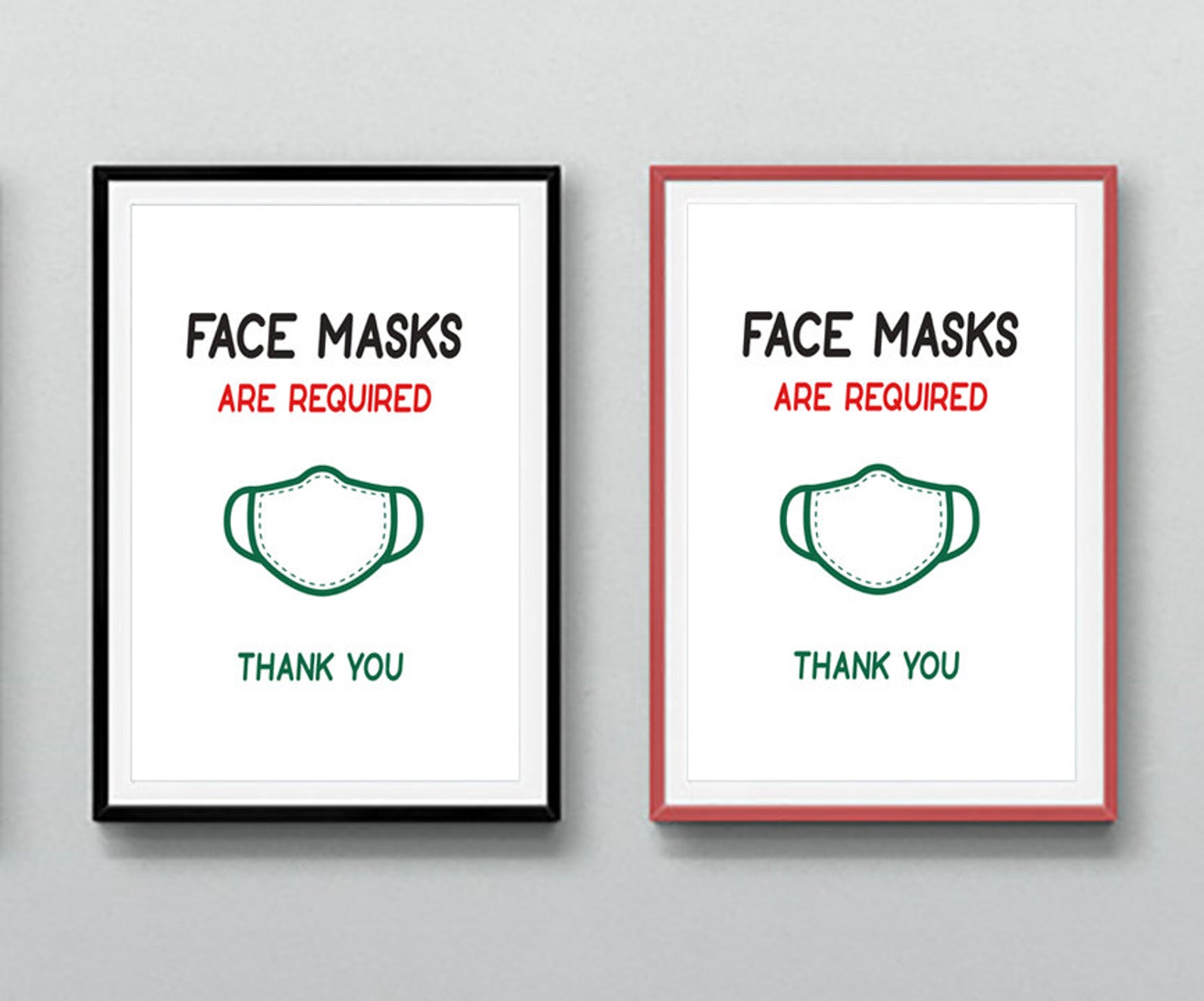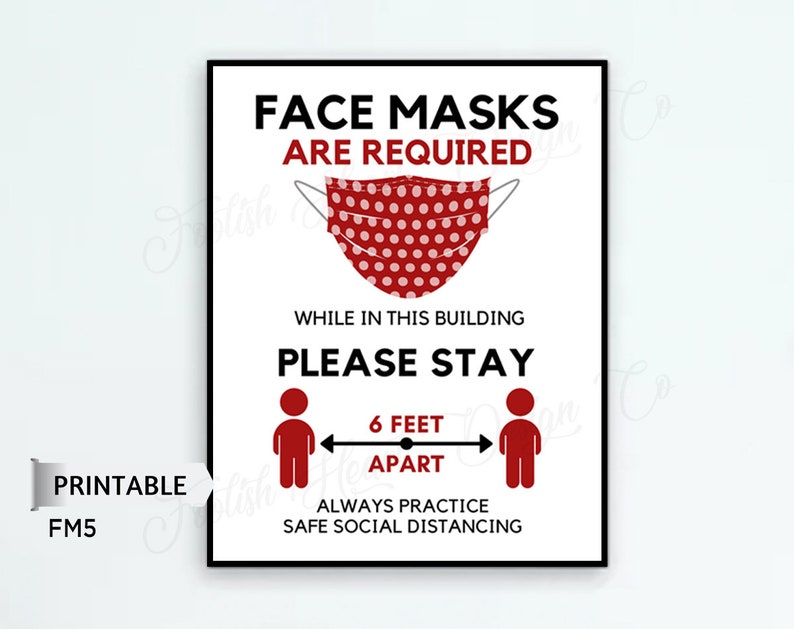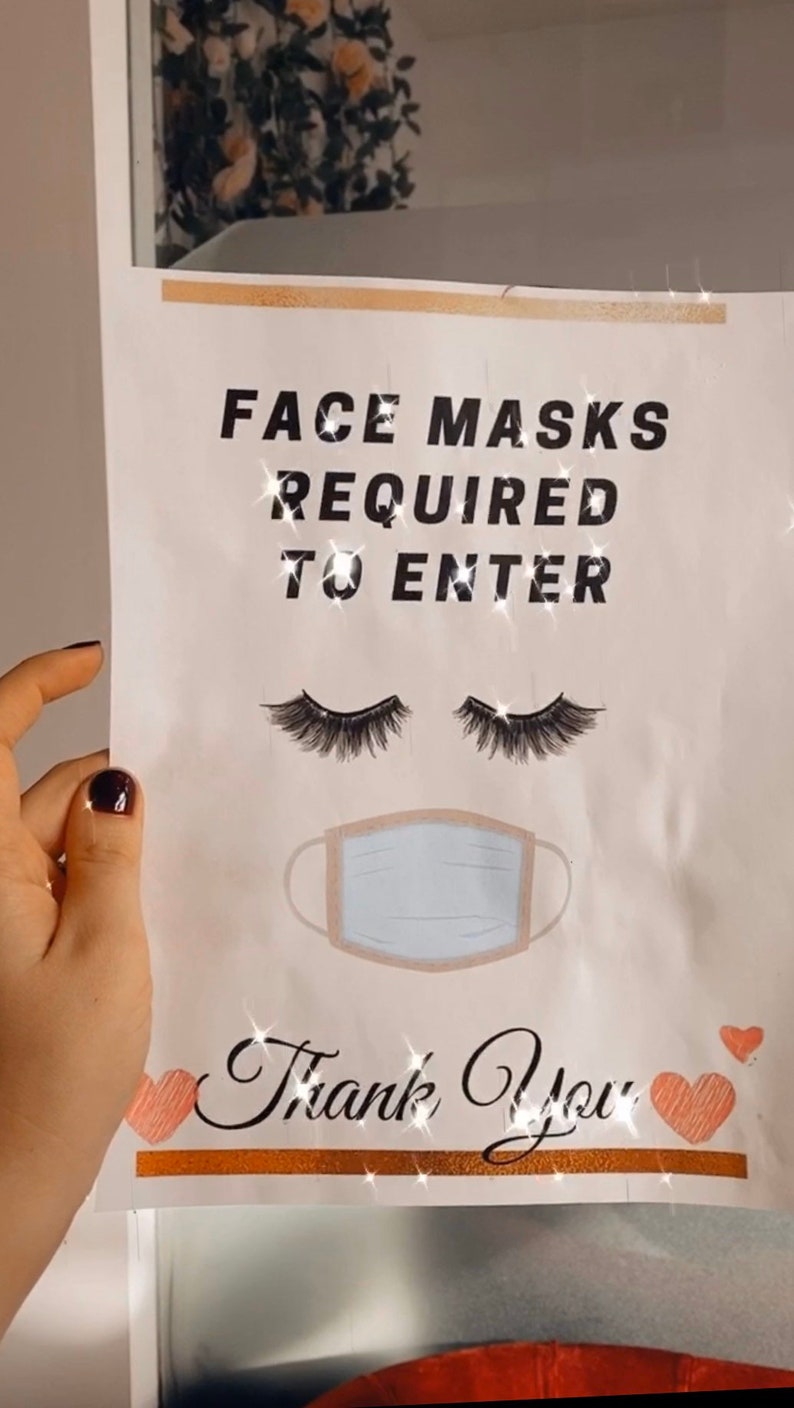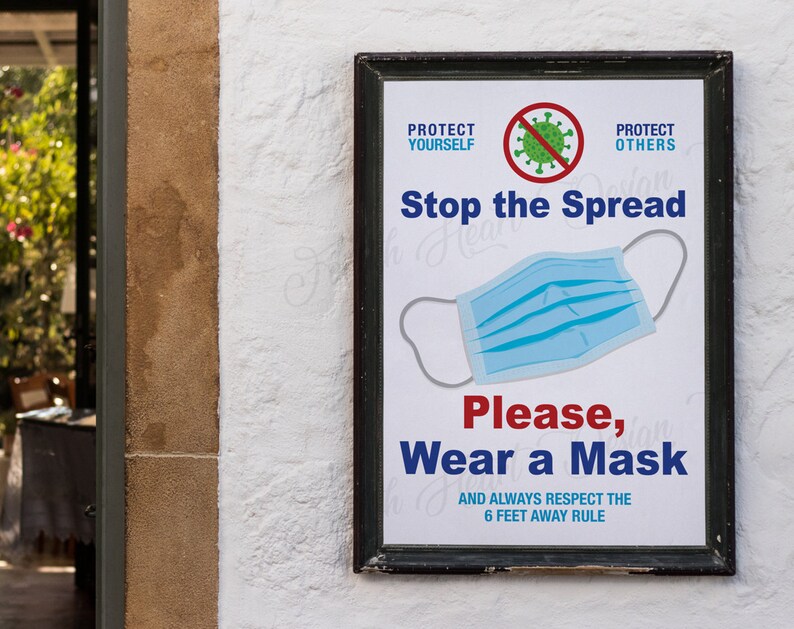
However, another person may not limit their access to places where a face covering is obligatory. Individuals exempt from wearing a mask or face covering owing to their health condition are recommended to avoid the places where they are obligatory, whenever possible. People who must temporarily remove their mask or face covering to verify their identity In such cases, they may remove their mask or face covering only while the care, service or activity takes place People receiving care or services or performing a physical or other activity that requires them to remove their masks.
FACE MASK REQUIRED SIGN PDF SKIN
People with a severe skin condition affecting the face or ears that would be seriously exacerbated by wearing a mask or face covering People with a cognitive impairment, an intellectual disability, a severe autism spectrum disorder, a drug addiction problem, or a severe mental health problem are incapable of understanding the obligation or would experience significant psychological distress

People with a physical disability which makes them unable to put them on or take them off People with health conditions preventing them from wearing a mask or face covering: People in the following situations are not subject to the obligation to wear a mask or face covering: To learn more, see the guides and tools produced by the CNESST. It is mandatory to wear a protective medical-grade mask in some workplaces, particularly for healthcare workers.

Masks or face coverings are not mandatory in facilities that exclusively offer mental health services. When they arrive there, staff may ask them to put on a procedural mask. Masks or face coverings are mandatory for all individuals going to general or specialized hospital centres (excluding psychiatric hospitals), private or public CHSLDs, a CLSC, medical clinics with a practising physician, nurse or nursing assistant.

FACE MASK REQUIRED SIGN PDF PROFESSIONAL
Healthcare facilities licensed or operated by the Commonwealth and healthcare practice locations of any provider licensed by a professional board which sits within the Department of Public Health or the Division of Professional Licensure. These settings include nursing homes, rest homes, emergency medical services, hospitals, physician and other medical and dental offices, urgent care settings, community health centers, vaccination sites, and behavioral health clinics.



 0 kommentar(er)
0 kommentar(er)
